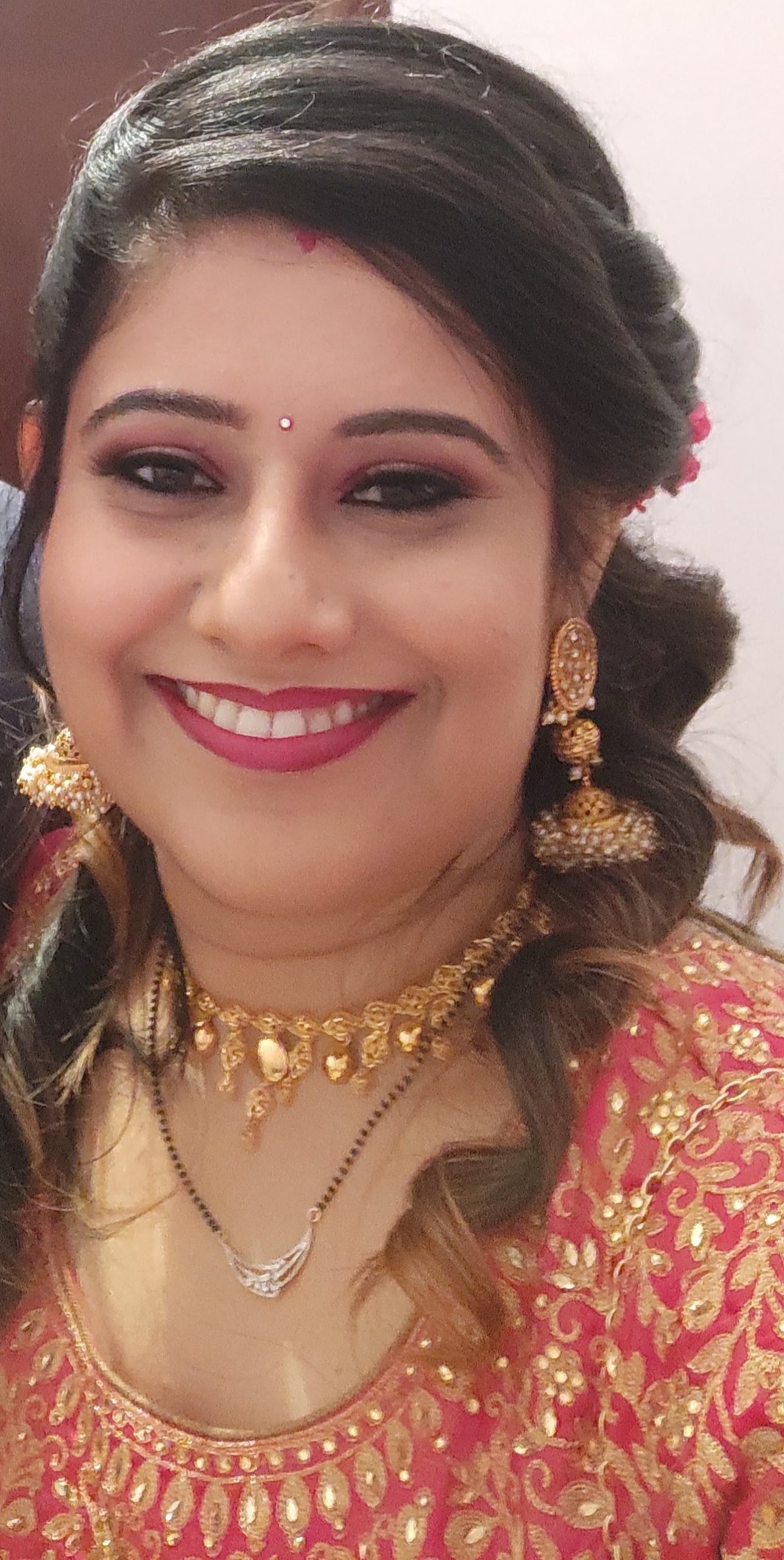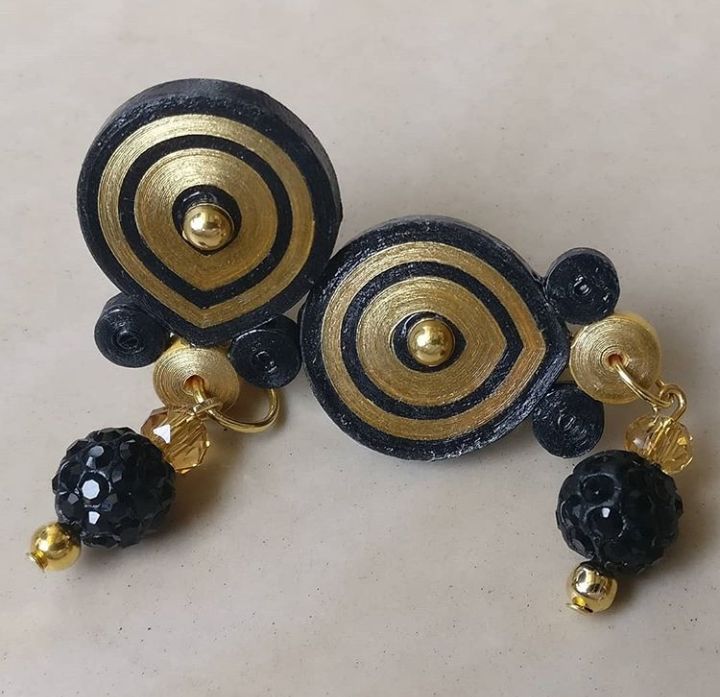I had free reign in the first 30 years of my life till I became a married woman. There is no denying that I was told by family, friends, relatives, society, community, and teachers – how to be a good girl. How to sit, how to speak, and how to be a good wife and daughter-in-law? Whatever the case, I made decisions in my life. I lived freely, without restrictions (at least not tangible).
From a free spirit to an encaged married woman
I got married and was told by five (husband, mother-in-law, father-in-law, brother-in-law, sister-in-law) not one person how to live my life. It was never about big decisions like whether to relocate for a job but about the trivial ones. What should I wear? What should I eat or what not? How should I speak to my husband in front of his relatives so that I am not dominating? When should I sleep? How should I spend my money? These questions are just the tip of the iceberg. I felt only one emotion about this treatment – shock and awe.
The balance of marital adjustment is tilted towards the married woman
In my understanding, Indians got independence 75 years back, but a newlywed woman didn’t. As it is not enough to uproot her life, the new family expects the woman adapts completely to their ways. Some changes indeed are to be made. But it takes two to tango, and change takes time. A few days into my marriage, I had instructions flying left, right, and centre at me. Before I could fulfil one request, I had another ready. The burden of adjustment disproportionately falls on the newlywed woman compared to the family.
Dr Chandrima Misra Mukherjee, co-head of Psychological Services, Artemis Hospital, says that the pressure of expectations from the new family triggers a lot of anxiety in married women. Already the woman faces separation anxiety due to living apart from her family of origin. Sometimes, this anxiety is ignored for a long time. “I have had women facing such anxiety even after 13 years of marriage,” says Dr Mukherjee.
“Who am I?” asked the newly married woman
My parents, like many others, provided me with an exceptional education. I grew to develop a sensibility between right and wrong. I grew up to be a self-dependent, a decision-maker, and a free-willed individual. I worked, travelled, and enjoyed myself with my friends. Suddenly after marriage, I became the provider. I was to provide cooked food, manage the house help, manage the household chores, arrange the entire house, and fulfil my husband’s and in-laws’ needs. Guess what went out of the window in being a traditional wife and a modern working woman? Myself!
Dr Mukherjee describes this identity conflict faced by a married woman. Am I in the driver’s seat of my life, or am I a customary wife and daughter-in-law? The woman is confused. A sword of double guilt hangs on her. She is constantly worrying about performing well at work. If she focuses on kids, family, and husband, she may be thought incompetent in office. If she thinks of career growth, the family may tag her as a progressive woman who doesn’t fulfil her traditional role.
A psychoanalytic psychologist, Vikas Deepak, points to a similar challenge for married women. Suppressing some personality traits, like a hearty laugh, that the new family may not accept. So, while she tries to balance the roles of a working woman and a housewife, she has to hide her true self beneath a more acceptable façade. Bearing so many changes at once is a job of a superhuman than a married working woman.
Role designation makes married women the weaker sex
There is enough narrative around physical abuse, but barely anything is said
Dr Chandrima Misra Mukherjee
about emotional abuse.
Despite the advancements in a patriarchal society, gender roles are embedded in the soil. Men are fed a sense of superiority since childhood, which they easily carry into their marriages. It doesn’t matter that I manage the household along with my career. The problem is that it is an unfair share of work and often underrated. A married woman’s career, leisure, and wants are subordinate to the man’s needs and career, children’s upbringing, and the traditional daughter-in-law role.
Men assume authority in financial matters. My husband had me convinced that he is better equipped to manage finances. Ultimately, I lost decision-making authority over my finances and even my life. As per statistics published by India Times, 66% of the men believe they have more say in family decisions than their wives. Women are made to feel that their ideas are wrong. They are constantly fed the idea that they are not good enough. So, creeps in self-doubt.
Depression, anxiety and suicide are common among married women
Almost four in ten women committing suicide worldwide are Indian and mostly married.
Marriage throws so many challenges at the feet of women. Fear of being labelled as emotional or dramatic makes them hesitant to share their concerns openly. Top of it, their family of origin and society always explained that the happiness of the husband and the new family is her responsibility. Loss of agency, the burden of expectations, identity confusion, gaslighting, self-sacrifice and self- doubt cause low moods and eventually depression.
Studies even say that marital satisfaction affects the physical health of wives. Women in happy marriages are thin and have better cholesterol and heart condition. On the contrary, women from unhappy marriages have poor health.
Tada! Caring for children and post-partum depression also fall into the
kitty of married women
Whether the husband helps in childcare, a mother is a primary caregiver. Breastfeeding alone is exhausting for a woman who just gave birth. Like before, a woman has to quickly change gears from being her to being a mother. As the child grows, the common expectation is that the mother will sacrifice her work to raise the child.
The lack of understanding of post-partum depression (PPD) in India adds to the woes of married women. Dr Mukherjee clarifies that PPD goes untreated and undiagnosed in many women for a long time. Eventually, the mother is unhappy, detached from her child, and uncomfortable with her role in motherhood. The cherry on top is more judgements on the woman.
It is a known fact that marriage makes couples healthier and happier, but it is more so for men than for women. From the start, a bride faces many changes, challenges, and new ideas. “If the husband and the new family are unsupportive, there are good chances of these mental challenges turning into mental health problems. There has to be a conducive environment to release frustration. Even if the new family is not quite sensitive, but there is a marital accord between the couple, the woman can deal better with the challenges,” says Vikas Deepak. Also, women receive no proper mental health care if required because of the attached stigma. They are left to the care of their family of origin instead of their husband and the new family.
In the upcoming article, I will talk about what we have to change the thinking of the society as whole; for every married woman to become happily married.

A technical writer in the field of life sciences, Aarti Bhola, pursued graduation and post-graduation in Biotechnology and Microbiology respectively. She is passionate about researching and writing informative content about any topic. A feather in her cap was her entrepreneurial venture, Melange Handicrafts, that sold lifestyle and home decor goods online. She continues to explore her artistic side via doodling and hand lettering.





A visionary perception. Clearly reveals the conflicts and the restrictions which inhibits the inate qualities of the person. Great article which will help noteworthy gathering. Keep it up.